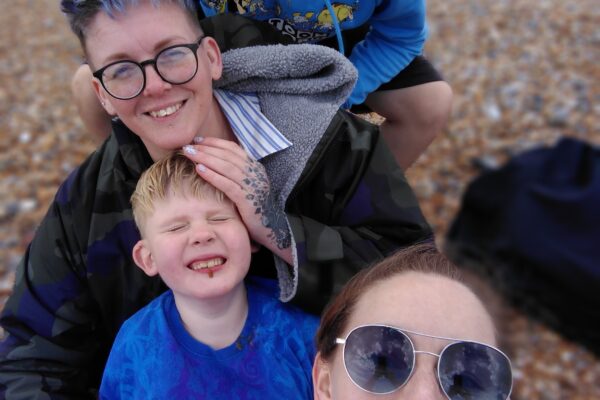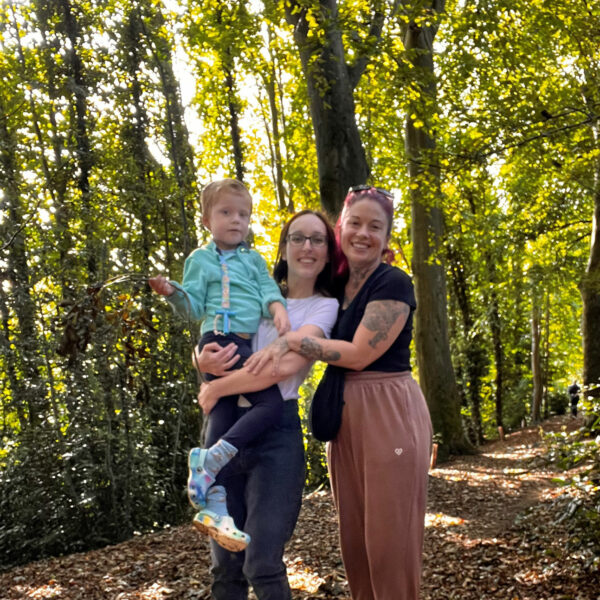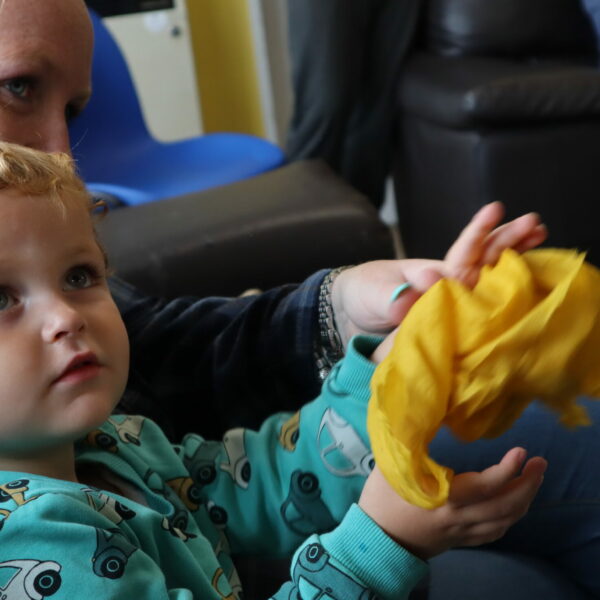Behaviour
Information and signposting to help parent carers support a child or young person who is showing distressed behaviour.
What is distressed behaviour?
All of us have times when we feel angry, sad or frustrated, but the ability to be able to recognise what we are feeling and take action to regulate our emotions varies from person to person. It also depends on what else is happening in our life. When we are tired, stressed or unwell, it can be harder to manage day to day frustrations and things that we usually shrug off may feel quite overwhelming.
Some children and young people with special educational needs and disabilities (SEND) may find it harder to recognise, express and regulate their feelings. At times, when they are feeling overwhelmed, frustrated or distressed it might lead to a physical or verbal outburst, which are examples of ‘distressed behaviour.’
Distressed behaviour is common in children and young people who have speech and communication difficulties, learning disabilities, or social, emotional and mental health conditions. Many children and young people who have neurodifferences such as autism or ADHD may show distressed behaviours. It can also be common in children who have experienced adverse childhood events and attachment trauma such as being separated from their birth parents.
When distressed behaviour happens it is very upsetting for the child, who may be struggling to communicate what is wrong, but it is also hard for others in the family, who may find it difficult to know what has triggered the behaviour and what they can do to help.
A word about language
We talk about ‘distressed behaviour’ in line with our neuro-affirmative approach, but we also refer to ‘behaviour that challenges others’ as this reflects the language you are likely to hear when you talk to professionals, particularly those working in schools and health practitioners. You may also still hear the term ‘challenging behaviour’ which we choose not to use. See our page on Amaze’s use of language for more information on this.
Characteristics of distressed behaviour
Distressed behaviour can be shown in a variety of ways. A child or young person might have physical outbursts, kicking, hair pulling, hitting, throwing items or spitting. Children may have verbal outbursts, shouting, or screaming. It can be very difficult when children and young people show their distress by hurting themselves or others in the family. At times, it may feel that you can’t keep everyone safe.
Some children and young people do not show their distress in an obvious way. Instead of having an outburst they may shut down and be unable to communicate or interact with others because they feel so overwhelmed.
Often, distressed behaviour is an immediate reaction to something, but sometimes when someone is feeling anxious, they might hold it together at school for example and then have a meltdown when they get home. This is known as ‘masking.’ Our masking explainer (pdf 870kb) is a useful starting point to understand more about this.
Distressed behaviour can impact daily life and may mean that simple activities such as getting ready for school or going to the supermarket are trickier to manage. Often, parents feel under pressure to manage their child’s behaviour. If your child has a disability or SEN that is not visible, some people may make snap judgements and call them ‘naughty’, which is unhelpful and upsetting.
It is also common to feel that other families find parenting ‘easier’ and wonder what you are doing ‘wrong.’ If this is the case, it’s important to remember that neither you nor your child are to blame – your child’s SEND means that they need a different approach and other strategies to support them.
It can be helpful to keep a diary of incidents so you can identify patterns in what happened leading up to the distress and work out what might have caused the behaviour.
What is my child trying to communicate?
Finding out what’s causing distressed behaviour often involves a bit of detective work. It can be helpful to step back and see things through your child’s eyes. Ask yourself:
- Is there a physical cause? Is my child or young person hungry, tired, in pain or discomfort?
- Is my child frightened or anxious? Are they in an unfamiliar place or around new people? Is a new activity overwhelming to them?
- Are they experiencing sensory overload? Is it very busy or noisy? Is it crowded, hot or cold? Are there any unusually strong smells, or bright lights?
- Is my child bored or frustrated?
- Are they trying to get your attention or something they like?
Supporting your child or young person
You may find it helpful to start with our Behaviour fact sheet (pdf 680kb) , which has more information and tips on supporting your child as well as links to local and national organisations offering support with distressed behaviour.
If you are waiting for your child or young person to be assessed for a condition, or you are thinking of asking your doctor or child’s school to make a referral to start the process, you can access some support while you are waiting.
If your child is at school or nursery and staff have identified that they have special educational needs or may have a disability (SEND), they are entitled to get any extra support they need to make progress, whether they have a diagnosis or not. You can read more about getting SEN support in school and nursery in detail in our Education section.
There are other Amaze services that can help you, too:
We run parent support groups across Brighton & Hove and East Sussex, which you may find helpful to come along to. If it is tricky to attend groups in person, we also have online groups that parents can join. This service can sometimes offer one-to-one befriending for families who are going through particular challenges such as diagnosis. Find out more about parent groups and befriending.
Amaze’s ND Family Support Service is for parent carers with a child or young person who is at any point along the assessment pathway for a neurodevelopmental difference such as autism and ADHD. You can get advice and guidance right from when a problem is first flagged, through assessment, diagnosis (or otherwise) and beyond.
For impartial information, advice and support on education, health, social care and disability related benefits, contact our SENDIASS Advice Service.
If your child or young person’s needs mean that they need much more care than other people of the same age, you might wish to consider applying for Disability Living Allowance for under 16s, or Personal Independence Payment for over 16s. You can apply, even if your child or young person does not have a diagnosis.
For details of other local services, see your Local Offer. This is your local authority’s online listing of all the services and support that are available to families of children and young people with SEND in the area.
Local support services
BHISS (Brighton & Hove Inclusion Support Service) and East Sussex’s Inclusion Team, which is part of the Team Around the School and Setting (TASS) are specialist school-based services that can give advice and support with behaviour for children and young people. Staff will work with the school to offer support and strategies that can help, including training. Talk to your child’s teacher or SENCO if you think they would benefit and ask them to make a referral if they think this is appropriate.
Child and Adolescent Mental Health Services (CAMHS) provides children and young people’s mental health services across Sussex. There are specialist teams who support children and young people aged 18 and under with a learning disability, where there is concern about their emotional wellbeing, mental health, or behaviour, or there is a risk to themselves or others. Contact: Brighton & Hove CAMHS Learning Disability Team. Referrals are made to the team via Brighton & Hove Wellbeing Service or East Sussex CAMHS Learning Disability Family Intensive Support Service.
Family hubs offer parenting advice and training to help you and your child. Get details of upcoming parenting workshops and courses, including Triple P online.
For Brighton & Hove parenting programmes visit Brighton & Hove Family Hubs. Or you can email [email protected] or call 01273 293 545.
For East Sussex parenting programmes, visit East Sussex Family Hubs, and search for your local hub to find out what’s on offer in person. Or you can find out about online courses for parents of children and teens
Support groups
- Amaze’s private Facebook group
- Newbold Hope – in addition to a website with free resources, there is also a private Facebook Family Support group.
- The Challenging Behaviour Foundation has an online Facebook peer support group
- Scope – has an online community forum where parents can discuss concerns
More about distressed behaviour
Videos
- Newbold Hope’s top ten videos on SEND VCB
- Yvonne Newbold TEDxNHS video – How to meet your child’s difficult behavior with compassion
- The Challenging Behaviour Foundation has videos on behaviour support for children with severe learning disabilities
- Family Lives – parenting advice videos and courses, advice line and online chat. See ParentChannelTV on YouTube.
Online and printed resources
- Amaze’s Sensory processing and Mental health fact sheets for Brighton & Hove and East Sussex .
- Contact publishes a downloadable guide to understanding your child’s behaviour
- Newbold Hope is a parent-led organisation that supports families of children and young people with SEND who show anxiety-driven and distressed behaviours.
- PDA Society – information, advice and workshops for families with children with pathological demand avoidance, part of the autism spectrum.
- Scope – advice on managing behaviour that challenges.
- Challenging Behaviour Foundation (CBF) – this national charity provides information, advice and support for families with a child or young person with severe learning disabilities. You can call the Family Support Service on 0300 666 0126 or email [email protected].
- Family Lives – is a website that has parenting advice videos and courses, advice line and online chat.
Books about distressed behaviour:
- Jessica Kingsley has published a number of books on distressed behaviour, mostly for children and young people with neurodifferences such as autism and ADHD
Get NDP Family Support
Parent carers in Brighton & Hove or East Sussex with a child (under 25) at any stage on the neurodevelopmental pathway can get support from Amaze NDP Family Support.









